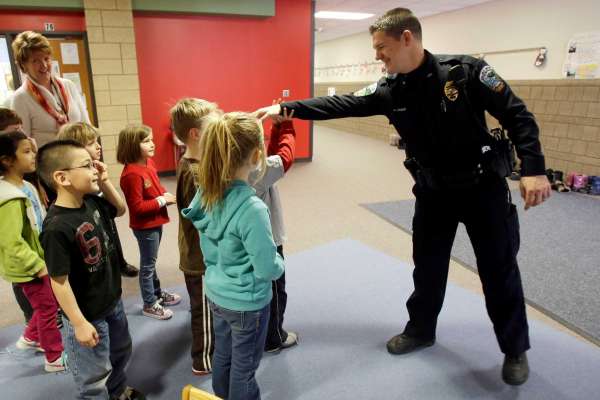Kids do well if they can. People do well if they can. Teachers do well if they can. Police officers do well if they can. In response to videos of police brutality, the issue of racial inequality has been brought to the forefront of our awareness, with Black Lives Matter protests held in all 50 states and multiple countries around the world. Most people agree that it is time for a change. But how? In a recent webinar, Dr. Stuart Ablon was joined by Think:Kids staff trainers, Randi Cooper and Averi Schaubman as they discussed ways to better equip police officers, particularly those in school settings. Check out their tips below!

Address the Disconnect on How to Handle Discipline
Dr. Ablon says there is a disconnect between school systems and police on how to handle disciplinary situations involving students. Officers say they are most effective when they have the opportunity to get to know the students they are serving and protecting. Many officers grow up in the same neighborhoods where they are now working, so there is a lot of potential for being able to relate to the students and empathize with them. However, officers are often told not to interact with students, except for when a problem arises. Without a pre-existing relationship, though, officers are always “the enforcers,” which creates friction between the officers and the students.
Understand Challenging Behavior is a Lack of Skill, Not Will
Dr. Ablon’s philosophy at Think:Kids is “Kids do well if they can” because no one intends to “act out,” but many kids are not equipped with the skills to handle certain situations. Instead of interpreting behavior in a situation as a lack of respect or that a student is “questioning authority,” understand that this child is simply doing the best they can. School safety agents need to be trained to understand behaviors and consider why this student is acting a certain way. For example, considering “why is this kid sitting in the hallway” instead of thinking “this child just wants to skip class.”
Acknowledge Biases Towards Students of Color
School discipline disproportionately affects students of color. Students of color are suspended and expelled more than their white peers, even though they make up a smaller percentage of a student body. One cause of this is the explicit bias many people have in thinking that challenging behavior is intentional; another is the implicit bias that kids of color are more likely to behave in a challenging way. This means having thoughts like “they’re just being disrespectful,” “they don’t care about this,” or “they just want to be messing around.” It is vital to understand and reflect on the biases that we all have in order to move forward and create meaningful change.
Have Officers Respond to Situations They Are Trained For
We need more mental health and other types of professionals to respond to situations, instead of calling the police for every incident. Additionally, it is imperative to train teachers to respond to behavior more effectively without the police getting involved. A police officer is not equipped with the skills to deal with many behavioral situations, especially mental health crises. By integrating mental health professionals and by training school officials, more difficult situations will de-escalate without police involvement, which allows officers to do the job that they were trained to do more effectively.
At the Flawless Foundation, we believe in seeing the perfection in everyone, and we emphasize Dr. Ablon’s words of wisdom that people do well if they can. Current events have proven that there are inequalities in our country and change is necessary. Let’s address these issues so together we can create a more Flawless world.







